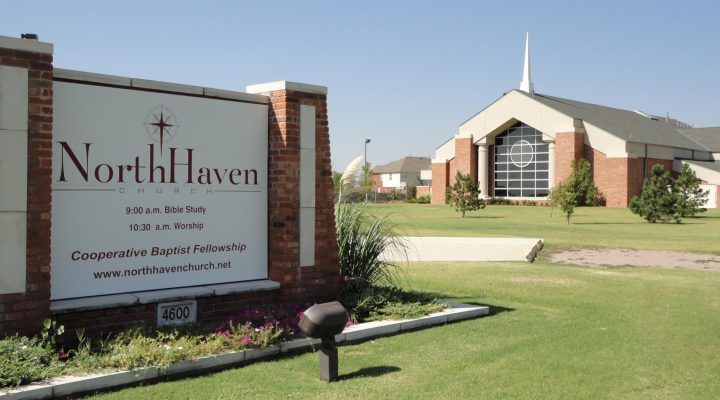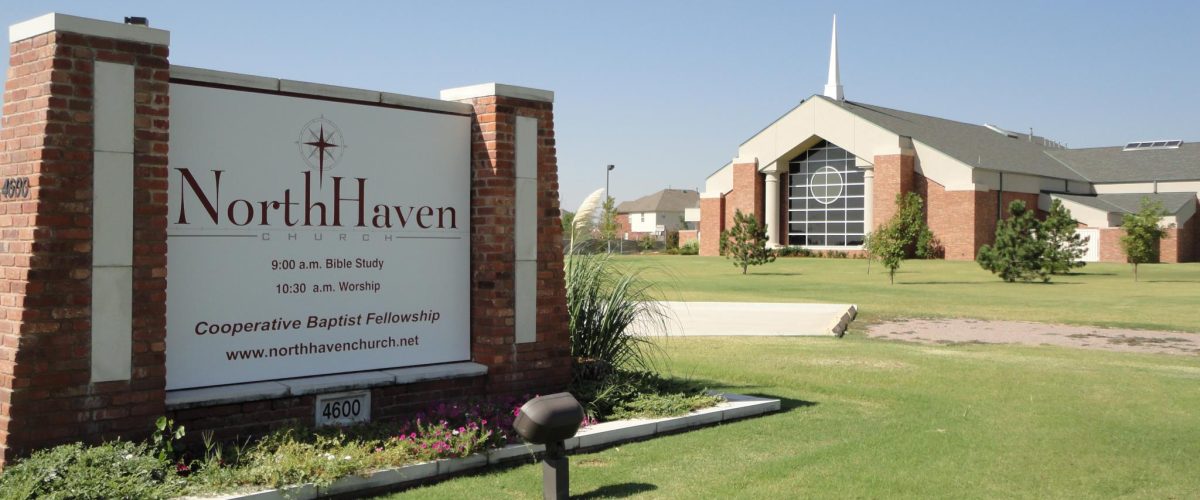Some pastors may dread having to move their congregation from a prominent church building into former retail space with a liquor store on the property. But not Jakob Topper, senior pastor of NorthHaven Church in Norman, Okla.
“I’m actually excited about the future and about seeing what we can do when every committee meeting doesn’t revolve around how we’re going to pay our bills and instead put more focus on how we can be faithful to the gospel of Jesus Christ,” he said.
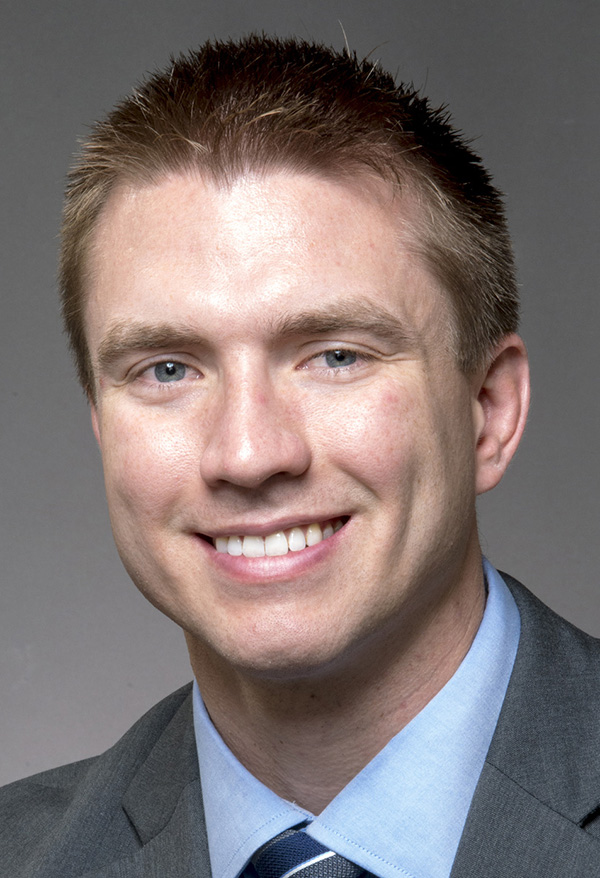
Jakob Topper
NorthHaven held the final Sunday services in its 18-year-old, nearly 23,000-square-foot facility Dec. 18, the same day Northeast Baptist Church said goodbye to its building across the country in Atlanta. Both Cooperative Baptist Fellowship-affiliated congregations faced crippling property and maintenance costs in an era complicated by the lingering effects of the COVID-19 pandemic and declining religious affiliation.
Helping guide Northeast Baptist through the eventual sale of its building and move to alternative spaces is a process denominational leaders will be increasingly facing in the years ahead, said Jody Long, executive coordinator of CBF Georgia.
Years of research have documented that more churches are closing than opening in the U.S. on an annual basis, and that average attendance in U.S. congregations has dipped to 65 or fewer. Pew Research Center found the share of Americans who identify as Christians plummeted from 90% to 64% from 1990 to 2020.
These and other trends will continue to place pressure on faith groups going forward, Long said. “I anticipate these kinds of conversations becoming more frequent, especially for smaller churches that have been struggling this year and struggling with maintaining the level of ministry they had been providing, with money, building issues, all the things cropping up even more in the post-pandemic era.”
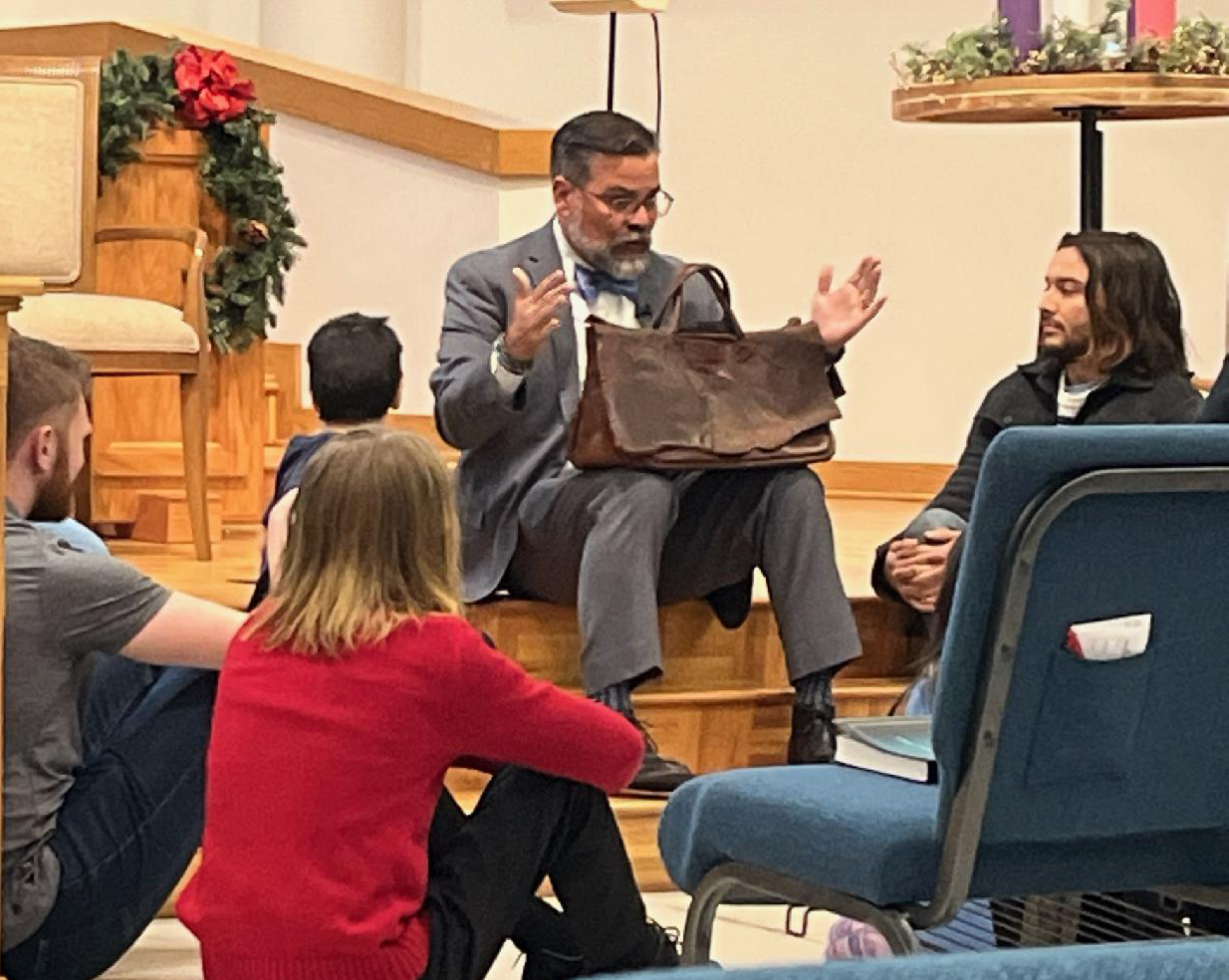
Mitch Randall, longtime pastor at NorthHaven and Jakob Topper’s predecessor, leads the final children’s moment in Sunday worship in the building.
At NorthHaven, the need to move was in part created by the death of a founding member whose contributions represented a significant portion of the church’s annual budget, Topper said.
Suddenly, little could be spent on missions and ministry, with 50% of revenues consumed by building expenses and 40% for staff, he added. “It was pretty abysmal, and we very quickly realized we were not going to be able to stay here and be faithful Christians at the same time.”
The next year was spent walking through the process that led eventually to the sale of the building to a nondenominational church. “It was really a time devoted to painting the picture of what life could be like without crippling debt and what life would be like devoting our time to missions and ministry.”
Topper added that the downtown grocery store space NorthHaven will share with a Habitat for Humanity chapter beginning next month is a context better suited to the congregation’s mission.
“Very few people from our ZIP Code go to our church. We are moving to the city center to a location that is right across the street from Norman High School. In a lot of ways, this move is very symbolic of what we are trying to do.”
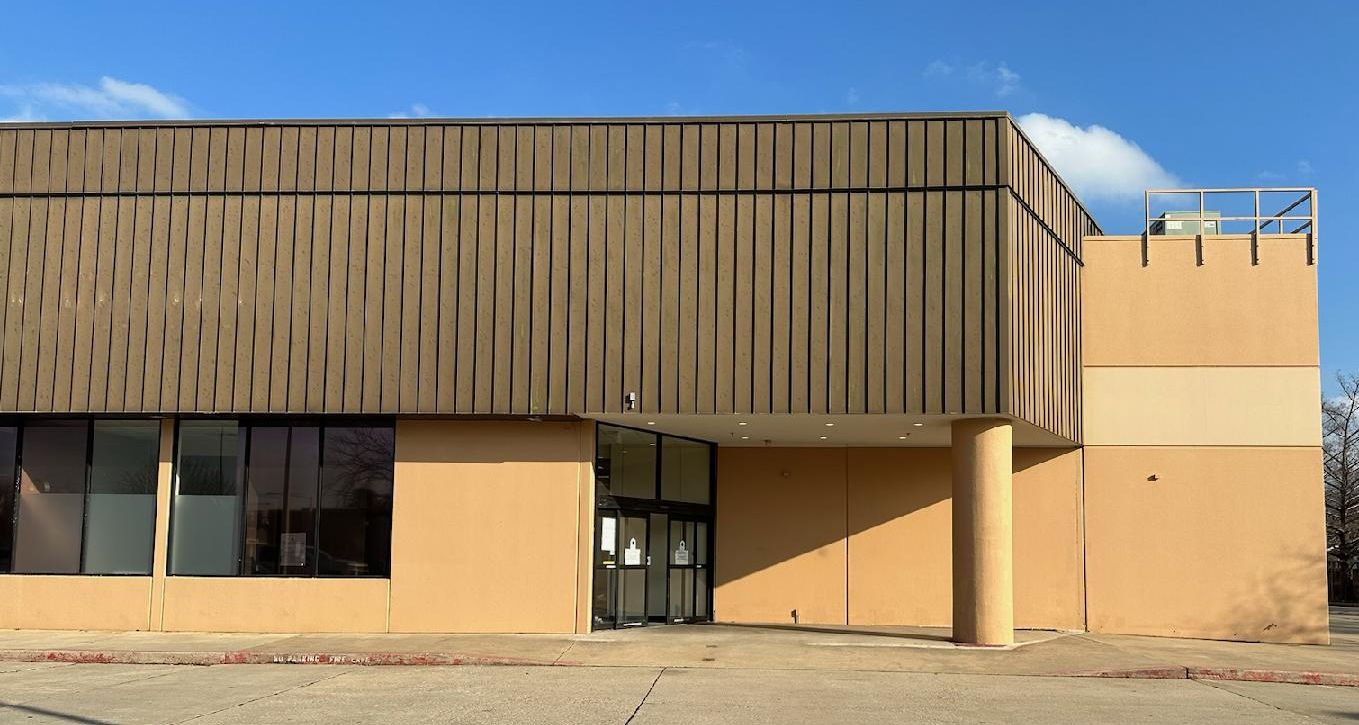
The former grocery store where NorthHaven will move.
The new location also is closer to the University of Oklahoma campus.
NorthHaven’s move is one a lot of other churches will be going through in the future, Topper predicted. “We’re probably on the front end of something that’s just going to keep happening.”
And for NorthHaven, that’s a good thing. “It’s kind of cool to figure out what the next season of church is going to look like,” he said.
Selling its building and moving into rented space also will be a blessing for the congregation at Northeast Baptist Church, said Pastor Jonathan Spencer.
“The church has become increasingly inclusive and progressive in the last few years, and we’re going to really emphasize inclusivity, including being welcoming and affirming (of LGBTQ people). We were dismissed from the Atlanta Baptist Association three years ago for that,” Spencer said of the tight-knit congregation that is changing its name to Open Circle Community Church.
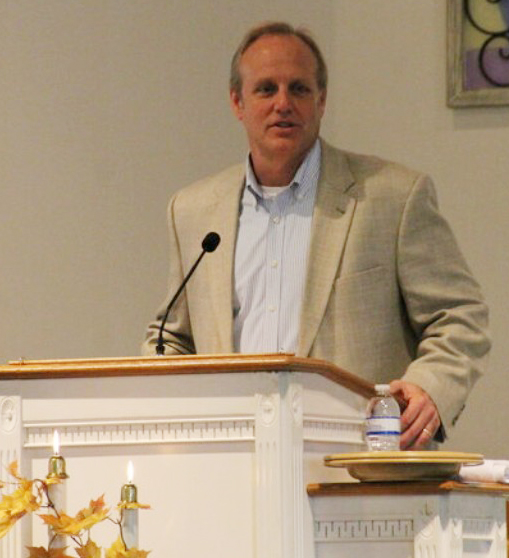
Jonathan Spencer
The church had known for years that dwindling attendance — currently at fewer than 60 people per week — was not enough to maintain a building meant to hold 400 worshipers. Renting to a school for refugee children prolonged ownership for a couple of years, but the outcome was inevitable, he said.
“You could look at the numbers for income and membership and see the handwriting on the wall in terms of sustainability,” Spencer explained. “And in some ways the pandemic hastened us getting to this point in making a dramatic move.”
The coronavirus outbreak forced the congregation out of the building for a time which, in turn, made it easier to make the transition by the time of the October closing. “It would have been more complicated to share space with the school if we had been fully occupying the building the way we were before the pandemic,” the pastor noted.
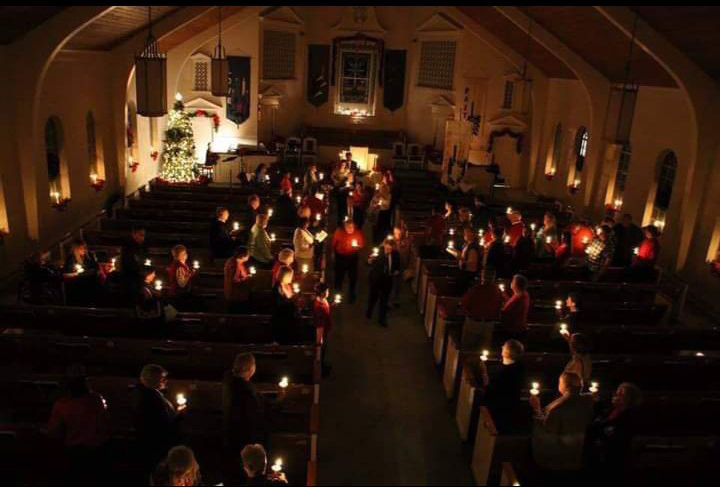
Candlelight service at Northeast Baptist Church
Beginning Jan. 8, the congregation will be worshiping in the chapel at nearby Embry Hills United Methodist Church. The two congregations share the spirit of inclusion and will cooperate in some of the host’s existing ministries, Spencer said. “We’ve held two joint worship services with them already, and we have a strong, collaborative relationship with them and really resonate with them.”
Open Circle Community Church will retain its Baptist identity and will remain open to what its next chapter may be, he pledged. “We are going to look at this as a chance to reimagine and see how things go.”
Being there for Northeast Baptist Church’s transition was bittersweet because it meant letting go of sacred space while embracing a new future, Long said, adding that CBF Georgia already is in conversation with other congregations facing similar situations. “It’s picking up speed and folks are going to have to make some tough choices.”
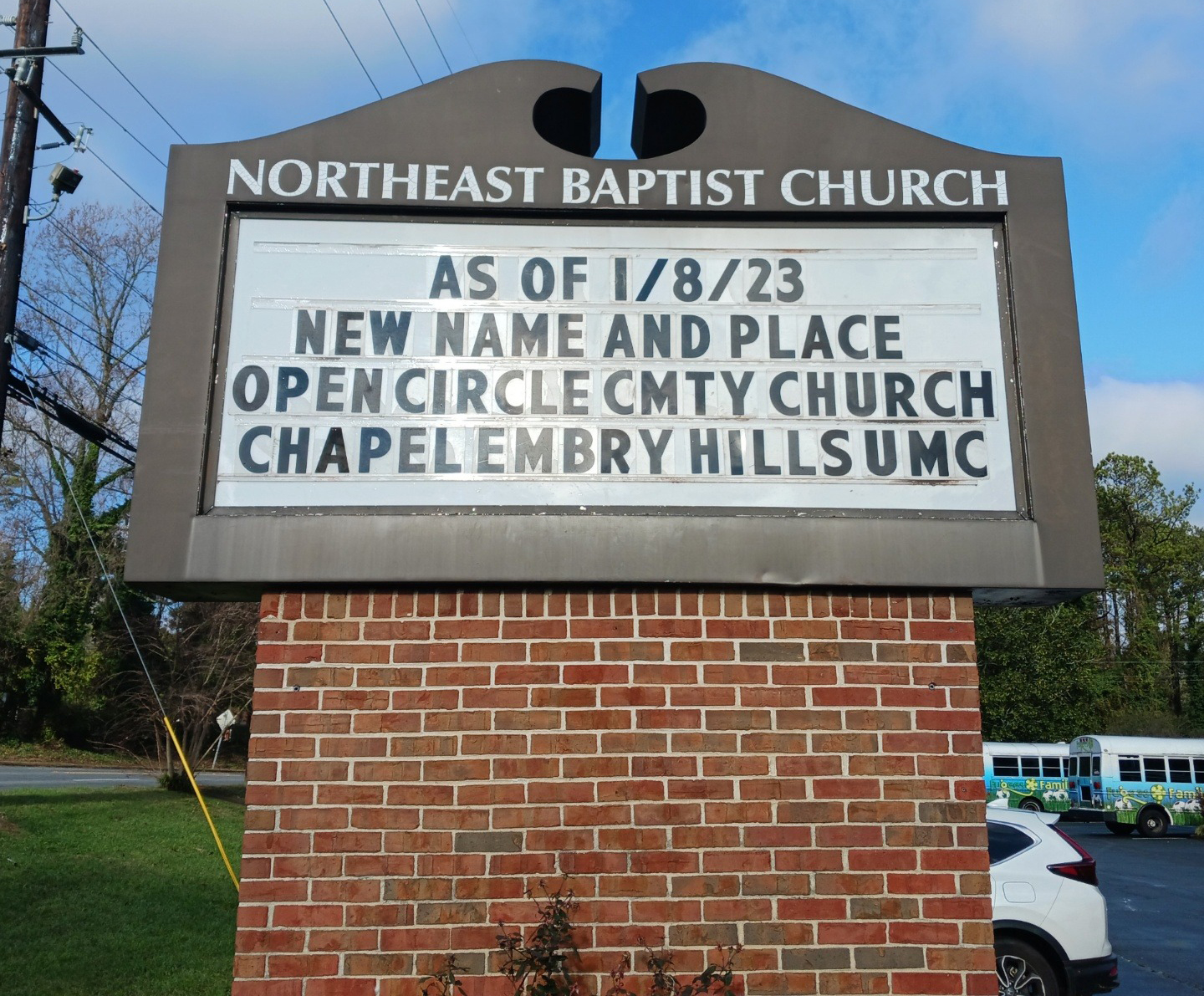 One of his biggest tasks in the process is to assure congregations and ministers they are not to blame for the cultural and social trends driving church closures, Long said.
One of his biggest tasks in the process is to assure congregations and ministers they are not to blame for the cultural and social trends driving church closures, Long said.
“At the end of the day, it’s generally not your fault. Some people take it personally. Some will say, ‘We are not going to give up.’ I applaud that effort, but at some point if we don’t think clearly about the opportunities before us, we miss out on ways to imagine and reimagine ministry in a new era.”
Related articles:
7 dos and don’ts when considering the redevelopment of church property | Opinion by Rick Reinhard
Before you make church property decisions, consider your mission and calling
Let’s reimagine how your church property might serve the community | Analysis by Brian Foreman and Justin Nelson

